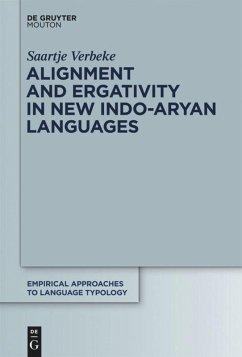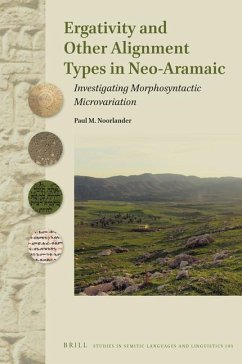
Alignment and Alignment Change in the Indo-European Family
Versandkostenfrei!
Versandfertig in über 4 Wochen
136,99 €
inkl. MwSt.

PAYBACK Punkte
68 °P sammeln!
This volume brings together work from leading specialists in Indo-European languages to explore the macro- and micro-dynamic factors that contribute to variation and change in alignment and argument realization. The chapters have a strong empirical focus, drawing on data from Anatolian, Indo-Iranian, Greek, Italic, Armenian, and Slavic.












